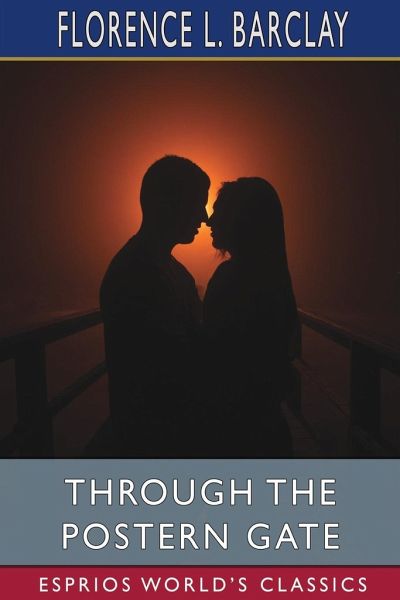Nicht lieferbar

Through the Postern Gate (Esprios Classics)
A Romance in Seven Days
Florence Louisa Barclay (2 December 1862 - 10 March 1921) was an English romance novelist and short story writer. She was born Florence Louisa Charlesworth in Limpsfield, Surrey, England, the daughter of the local Anglican rector. One of three girls, she was a sister to Maud Ballington Booth, the Salvation Army leader and co-founder of the Volunteers of America. When Florence was seven years old, the family moved to Limehouse in the London Borough of Tower Hamlets. In 1881, Florence Charlesworth married the Rev. Charles W. Barclay and honeymooned in the Holy Land, where, in Shechem, they repor...
Florence Louisa Barclay (2 December 1862 - 10 March 1921) was an English romance novelist and short story writer. She was born Florence Louisa Charlesworth in Limpsfield, Surrey, England, the daughter of the local Anglican rector. One of three girls, she was a sister to Maud Ballington Booth, the Salvation Army leader and co-founder of the Volunteers of America. When Florence was seven years old, the family moved to Limehouse in the London Borough of Tower Hamlets. In 1881, Florence Charlesworth married the Rev. Charles W. Barclay and honeymooned in the Holy Land, where, in Shechem, they reportedly discovered Jacob's Well, the place where, according to the Gospel of St John, Jesus met the woman of Samaria (John 4-5).






